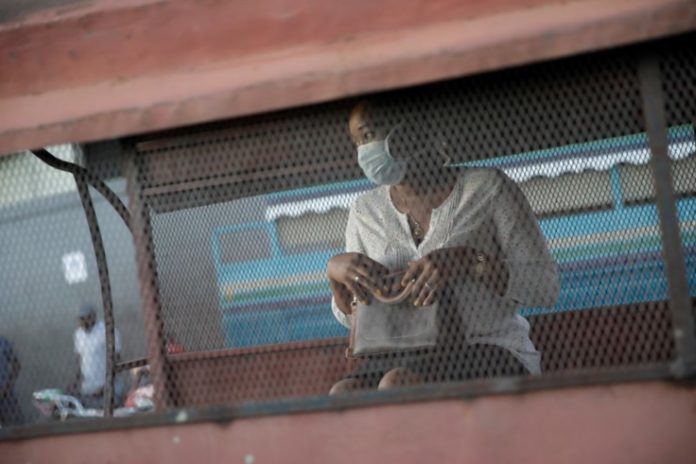
“One special advantage of the skeptical attitude of mind is that a man is never vexed to find that after all he has been in the wrong.”
Dr. William Osler
I am not an epidemiologist nor an expert in public health. My job is to evaluate single patients and determine if they are sick or healthy. I am not used to thinking of the collective health of millions (or billions) of people.
However, thanks to the Haitian cholera epidemic early last decade, I was forced to think in terms of a big population of people who were made ill by the cholera bacteria after it was released by UN forces into a river in central Haiti.
So I am going to ask some questions below which will prove that I am no expert in public health regarding the coronavirus pandemic and how it pertains to Haiti. And I am sure my questions and comments can easily be answered by the experts.
Two days ago, on Mar. 19, the Haitian government announced the first confirmed coronavirus cases in two people in Haiti. This, of course, is not a good thing and Haitians are afraid as they should be. The coronavirus is easily transmissible and has a case fatality rate that is supposedly 10 times that of the flu.
if Haiti’s coronavirus outbreak takes off now like it has in multiple countries, does it make sense to restrict flights?
Haiti’s President Jovenel Moïse has declared a state of emergency and he told a news conference that all of Haiti’s ports, airports, and borders would be closed to people from midnight on Thu., Mar. 19, though they would remain open for goods traffic. And Moïse has invoked a curfew.
But I want to know if any of this will work.
Why have flights to Haiti been stopped as of yesterday? Is it to stop the traveler to Haiti who is considered high risk for having and spreading the virus? I guess this makes sense, but if Haiti’s coronavirus outbreak takes off now like it has done in multiple countries in the world, does it make sense to restrict flights? In other words, is walling Haiti off really very helpful in controlling the virus?
Haiti does not have a functional health care system on a good day let alone a system that can effectively fight this virus. State-run hospitals are frequently on strike, and they often lack basic services. Critical care beds in Haiti are limited and there are an estimated 100 ventilators available for 11 million Haitians.
So should we turn our attention from hospitals and ventilators to preventing the disease in the first place? That seems reasonable but is the prevention of coronavirus transmission possible on an industrial scale in Haiti?
During the last few weeks, we have all learned about the concept of “flattening the curve” regarding coronavirus infections. But I want to know if the usual public health interventions will work in Haiti during this pandemic. In other words, should Haiti be subject to containment policies or to social distancing to flatten the curve like we are attempting to do in the United States?
Why do we want to flatten the curve with coronavirus infections? My understanding is that flattening the curve will not stop the virus; it’s likely the same number of people will ultimately still get sick. But it could mean the difference between a manageable surge of patients and one that overwhelms scarce resources, resulting in unnecessary deaths.
And this sounds good. But are all these efforts worthwhile in Haiti? Is it worthwhile to flatten the curve in Haiti in order to protect Haiti’s scare resources which hardly exist in the first place?
Consider the very important Community Health Worker (CHW) in Haiti during the days of coronavirus. He or she needs to be paid and protected with the critically important Personal Protective Equipment (PPE) to walk around the slum in 95-degree heat.
And this specially trained CHW will do public health surveillance to see if people could have Covid-19. If they meet the criteria, then what?
There is no treatment in Haiti that will be accessible by the masses. But there is quarantine to stop transmission. But how do we isolate people in the Haitian slum where the population density is so high and people need to have human contact in order to survive?
So let’s say the CHW identifies a family of 10 in the slum who all have mild signs and symptoms of Covid-19. Does the CHW advise them to stay quarantined in their one-room shack for 14 days? I don’t think this will work because the breadwinners in the house need to score some bread because they all need to eat. And this family’s neighbors next door don’t have the time or abilities to help out because they have equally severe challenges surviving the slum also.
And would identifying people in the slum as possibly having coronavirus put them in danger of being attacked?
Without social distancing, the virus will spread quickly in Haiti and live under the big mean curve we have all come to abhor. But under these circumstances, is this the better, more humane curve for Haiti? Wouldn’t it be better for Haitians to get sick at once, develop herd immunity, and be done with this horrible virus?
Maybe it is not quite this simple. I am open to enlightenment.
John A. Carroll, MD
Mar. 21, 2020
Dr. John Carroll is one of the founders of Haitian Hearts, which has offered basic medical care to clinics, hospitals, and orphanages in Haiti since 1995. This open letter was originally published on his blog in the Peoria Journal Star.










